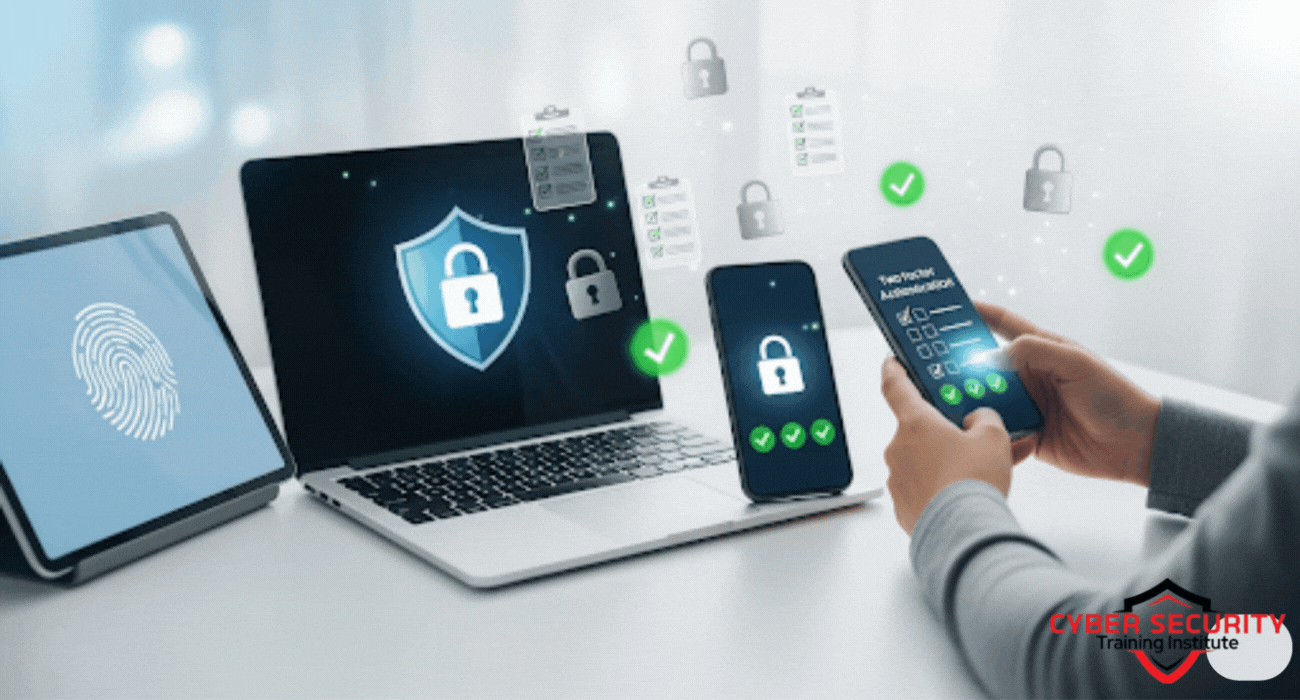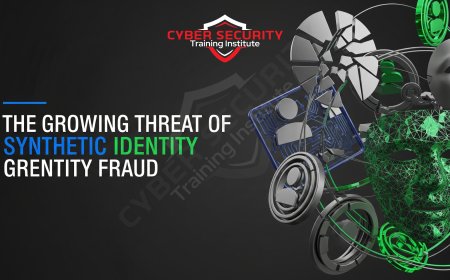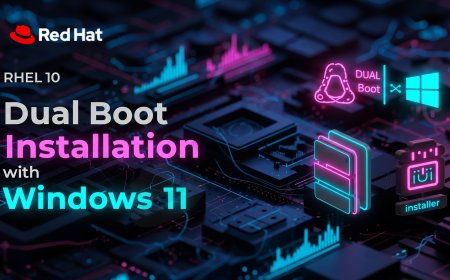Cyber Hygiene | The Daily Habits That Keep You Safe Online
In today’s digital world, staying safe online is as essential as locking your front door. Every day, we share personal details, browse websites, and connect with others, often without realizing the risks lurking in the digital shadows. Cyber hygiene—simple, consistent habits to protect your online presence—can make all the difference. Think of it like brushing your teeth: small daily actions that prevent big problems later. This blog explores practical habits to keep you secure, explained in a way anyone can understand, whether you’re a tech newbie or a seasoned user.

Table of Contents
- Why Cyber Hygiene Matters
- Daily Habits for Online Safety
- Password Management Tips
- Safe Browsing Practices
- Keeping Software Updated
- Backing Up Your Data
- Quick Reference: Cyber Hygiene Checklist
- Conclusion
- Frequently Asked Questions
Why Cyber Hygiene Matters
Imagine leaving your wallet on a park bench or your house unlocked. That’s what poor cyber hygiene is like—it invites trouble. Cybercriminals exploit weak passwords, outdated software, and careless browsing to steal data, money, or even your identity. In 2024 alone, data breaches exposed billions of personal records worldwide. Good cyber hygiene minimizes these risks by building a strong defense through simple, repeatable actions. It’s not about being a tech expert; it’s about being consistent and cautious.
Daily Habits for Online Safety
Building cyber hygiene starts with small, manageable habits. Here are some you can incorporate into your daily routine:
- Check your accounts: Log into your important accounts (email, banking, social media) regularly to spot unusual activity, like unrecognized logins.
- Avoid public Wi-Fi for sensitive tasks: Public Wi-Fi, like at a coffee shop, can be a hotspot for hackers. Use a virtual private network (VPN) if you must connect.
- Be wary of emails and links: Phishing scams trick you into clicking malicious links or sharing personal info. Always verify the sender before clicking.
- Log out of shared devices: Whether it’s a work computer or a friend’s laptop, always log out to prevent unauthorized access.
Password Management Tips
Passwords are your first line of defense, but weak ones are like flimsy locks. Here’s how to make them strong and manageable:
- Use unique passwords: Never reuse passwords across accounts. If one account is hacked, others stay safe.
- Make them complex: Combine letters, numbers, and symbols (e.g., Tr0ub4dor&st1x). Aim for at least 12 characters.
- Use a password manager: Tools like LastPass or Bitwarden store your passwords securely, so you don’t have to remember them all.
- Enable two-factor authentication (2FA): This adds a second step, like a text code, to verify your identity. It’s like a deadbolt for your accounts.
Safe Browsing Practices
Browsing the web is like walking through a busy market—most vendors are legit, but some are pickpockets. Stay safe with these tips:
- Stick to HTTPS websites: Look for “https://” and a padlock in the address bar, signaling a secure connection.
- Avoid suspicious downloads: Only download files from trusted sources. A random pop-up offering free software is often a trap.
- Use an ad blocker: Ads can hide malware. Tools like uBlock Origin can reduce risky pop-ups.
- Clear cookies regularly: Cookies track your activity. Clearing them from your browser settings limits data collection.
Keeping Software Updated
Outdated software is a hacker’s playground. Updates patch security holes, so make these habits part of your routine:
- Enable automatic updates: Set your operating system, apps, and antivirus to update automatically.
- Check for updates weekly: Manually verify that your devices and software are current.
- Use reputable antivirus software: Programs like Norton or Malwarebytes can catch threats updates might miss.
Backing Up Your Data
Losing data to a cyberattack or device failure is devastating. Regular backups ensure you’re covered:
- Use the 3-2-1 rule: Keep three copies of your data, on two different devices, with one stored offsite (like in the cloud).
- Automate backups: Tools like Google Drive or Backblaze can back up files automatically.
- Test your backups: Periodically check that your backups work to avoid surprises.
Quick Reference: Cyber Hygiene Checklist
| Habit | Frequency | Why It Matters |
|---|---|---|
| Check account activity | Daily | Spots unauthorized access early |
| Use strong, unique passwords | Ongoing | Prevents account compromise |
| Enable 2FA | Once per account | Adds an extra layer of security |
| Browse HTTPS sites | Always | Ensures secure data transfer |
| Update software | Weekly | Closes security vulnerabilities |
| Back up data | Weekly/Monthly | Protects against data loss |
Conclusion
Cyber hygiene doesn’t require a tech degree or hours of effort. By adopting simple habits like using strong passwords, enabling 2FA, browsing safely, keeping software updated, and backing up data, you can significantly reduce your risk of cyberattacks. Think of these practices as daily digital chores—small steps that build a fortress around your online life. Start with one or two habits, then gradually add more. Over time, these routines will become second nature, keeping you safe in an ever-evolving digital landscape.
Frequently Asked Questions
What is cyber hygiene?
Cyber hygiene refers to regular habits and practices that protect your online data and devices from cyber threats, like strong passwords and software updates.
Why is cyber hygiene important?
It prevents data breaches, identity theft, and financial loss by reducing vulnerabilities hackers exploit.
How often should I change my passwords?
Change passwords every 6-12 months or immediately if you suspect a breach. Use unique passwords for each account.
What makes a strong password?
A strong password is at least 12 characters, with a mix of letters, numbers, and symbols, and isn’t reused across accounts.
What is two-factor authentication (2FA)?
2FA adds a second verification step, like a code sent to your phone, to confirm your identity when logging in.
Are password managers safe to use?
Yes, reputable password managers like LastPass or Bitwarden use encryption to securely store your passwords.
What is phishing, and how do I avoid it?
Phishing is when scammers trick you into sharing info via fake emails or links. Verify senders and avoid clicking suspicious links.
Why should I avoid public Wi-Fi?
Public Wi-Fi can be intercepted by hackers. Use a VPN to encrypt your connection if you must use it.
What does HTTPS mean?
HTTPS means a website encrypts data you send and receive, making it safer than HTTP sites.
Can ad blockers improve security?
Yes, ad blockers like uBlock Origin prevent malicious ads that could install malware on your device.
How do I know if a website is safe?
Check for HTTPS, a padlock icon, and a reputable domain name. Avoid sites with pop-ups or suspicious content.
Why do software updates matter?
Updates fix security flaws that hackers can exploit to access your device or data.
What happens if I don’t update my software?
Outdated software is vulnerable to attacks, increasing the risk of malware or data theft.
What is a VPN, and do I need one?
A VPN encrypts your internet connection for privacy. It’s useful for public Wi-Fi or sensitive tasks but not always necessary.
How often should I back up my data?
Back up weekly or monthly, depending on how often your data changes, using the 3-2-1 rule.
What is the 3-2-1 backup rule?
Keep three copies of your data, on two different devices, with one stored offsite, like in the cloud.
Can I trust cloud storage for backups?
Reputable cloud services like Google Drive or Dropbox are secure if you use strong passwords and 2FA.
What should I do if I suspect a data breach?
Change your passwords, enable 2FA, monitor accounts for unusual activity, and contact the affected service.
Is antivirus software necessary?
Yes, it catches threats that slip through other defenses, especially on Windows devices.
How can I teach my family about cyber hygiene?
Share simple tips like using strong passwords, avoiding suspicious links, and keeping devices updated.
What's Your Reaction?
 Like
0
Like
0
 Dislike
0
Dislike
0
 Love
0
Love
0
 Funny
0
Funny
0
 Angry
0
Angry
0
 Sad
0
Sad
0
 Wow
0
Wow
0















